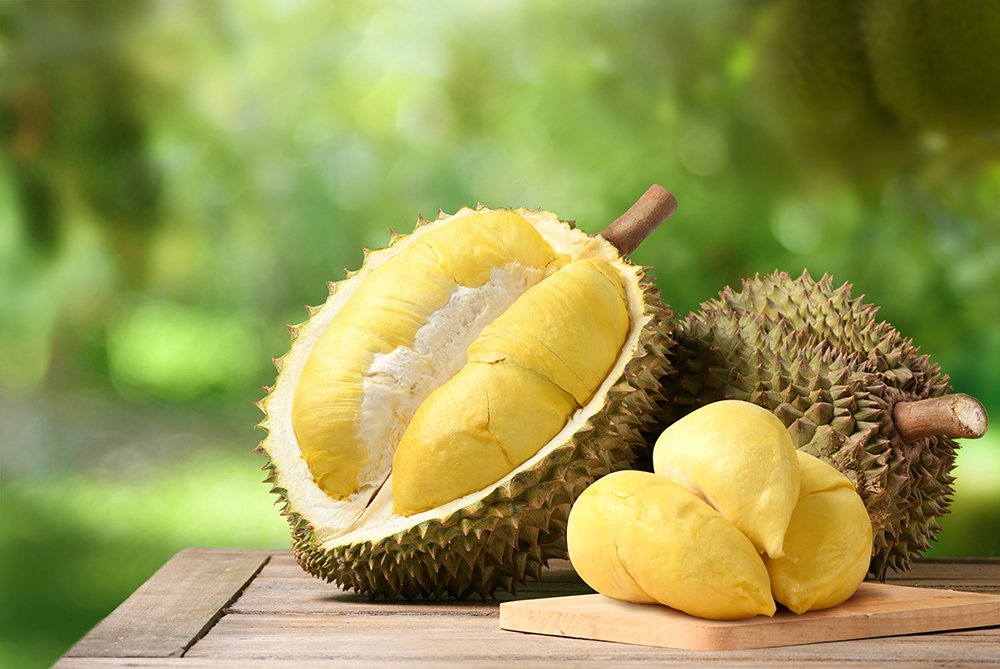The durian fruit has gained a lot of attention for its pungent aroma rather than its taste or any health benefits. The fruit comes encased in a prickly shell, and “the king of fruits” has a smell that is described as sulfuric and like that of rotting onions. Others have likened its aroma to freezer burn and even sweaty shoes. It has a custard consistency, and many enjoy its flavor. It is also known to be nutrient-dense and can be a healthy addition to a person’s diet.
While durian isn’t toxic to dogs, and owners can feed a small amount of the fruit occasionally, it is a fatty fruit and contains natural sugars like all fruits. The fat and the sugar can cause gastrointestinal upset with vomiting and diarrhea, and if fed frequently it can cause your dog to put on excess weight.
Fortunately, the smell of the fruit is unpleasant to most dogs.

Why Can’t Dogs Eat Durian?
Durian isn’t toxic to dogs and won’t harm them if they eat a small amount of the fruit flesh. However, the spiky skin of the fruit can cause injury to the mouth and throat, so you should prevent your dog from chewing on a whole durian fruit.The seeds are also dangerous, they contain small amounts of cyanide and can cause intestinal blockages if ingested. If your pup eats durian, keep an eye on them, especially for signs of vomiting and diarrhea.

Dangers of Feeding Durian to Dogs
While durian isn’t toxic, that doesn’t mean it’s an ideal food for dogs. As well as having skin that is difficult to eat and can cause injuries, below are some other concerns with this fruit.
High In Fat
Dogs need some fat in their diet. As well as providing energy for your four-legged friend, it also transports some vitamins around the body, ensuring they benefit from the nutrients they receive in their diet. However, while some fat is good, too much can be harmful.
It is generally recommended that a dog’s diet should consist of between 5% and 8% fat. Younger dogs, as well as pregnant and nursing dogs, need more fat, while overweight dogs or those that are especially prone to putting on weight require less.
Adding fatty foods to your dog’s diet can upset their stomach causing vomiting and diarrhea, and can increase the risk of developing pancreatitis. Pancreatitis is inflammation of the pancreas, it varies in severity but it is a painful condition that can be life-threatening.
Signs of pancreatitis include pain and discomfort in the abdomen, dehydration, and lethargy, as well as vomiting and diarrhea. Book an appointment with your vet as soon as possible if your dog is showing any signs of pancreatitis.
High In Sugar
Durian is also high in sugar, as are many fruits. Dogs should not consume large amounts of sugar in their diet because it can cause weight gain and lead to obesity. This is possible if you feed durian to your dog regularly or if it is one of various high-sugar treats in their diet.
Obesity in dogs is linked to many other health concerns including mobility problems like arthritis, diabetes, heart disease and some types of cancer.

The 5 Fruits You Can Feed Dogs
All fruit contains natural sugars, and they should only be given as an occasional treat and in small amounts. Moreover, some fruits, like grapes and raisins, are toxic to dogs. Below are five fruits that are considered safe to feed to dogs as an occasional sweet treat.
1. Apple
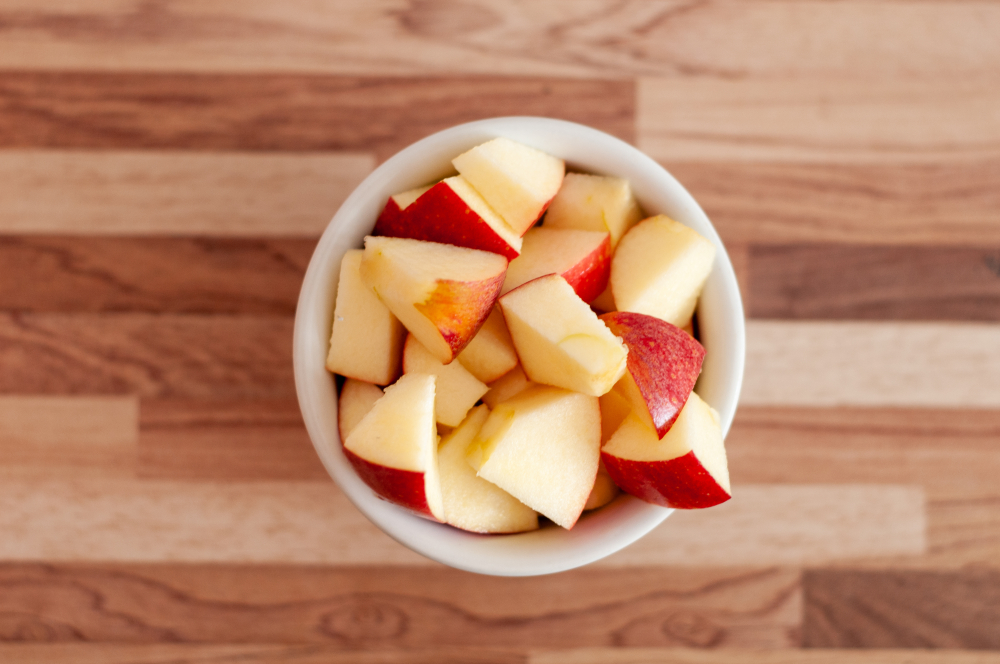
Apples make great occasional treats for dogs. They are a source of vitamins C as well as being rich in dietary fiber. Unlike durians, they are low in fat.
Remove the seeds and peel the apple before feeding, but if your dog likes the taste of the apple, you can dice some up and put it on top of their meal to add a little variety to their food.
2. Banana
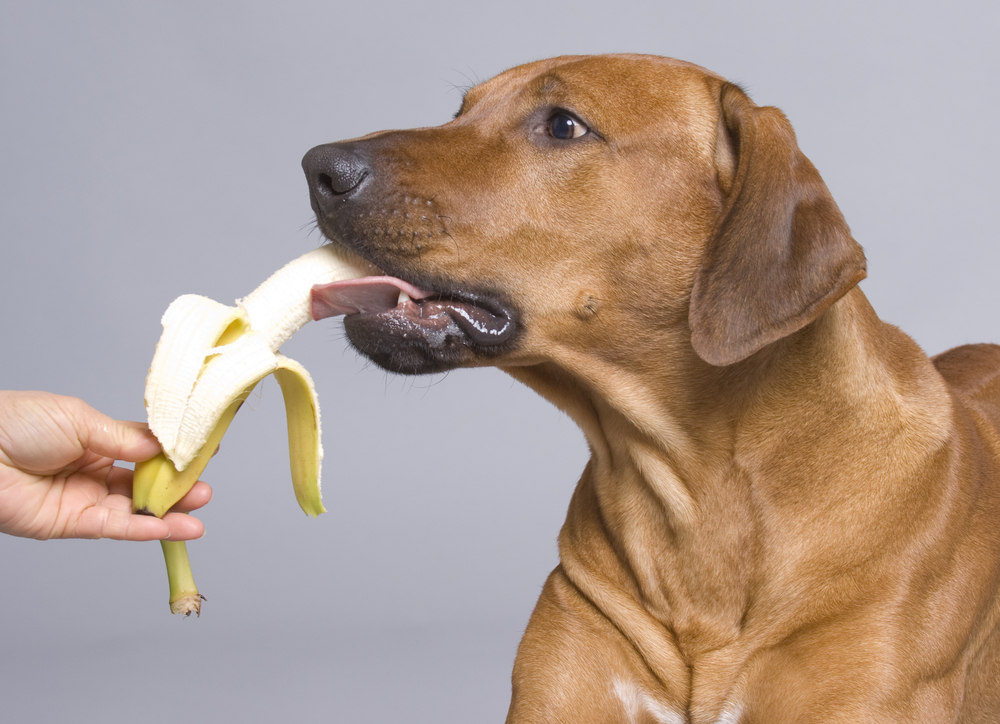
Banana is another fruit that is as beneficial for dogs as for people. It is high in potassium, copper, and biotin and rich in various vitamins and fiber. However, bananas contain a lot of sugar, so you should only offer a small portion and not serve it as a regular treat.
Start with a slice or two, depending on the size of your dog, and add it to your dog’s meal once a week.
3. Watermelon
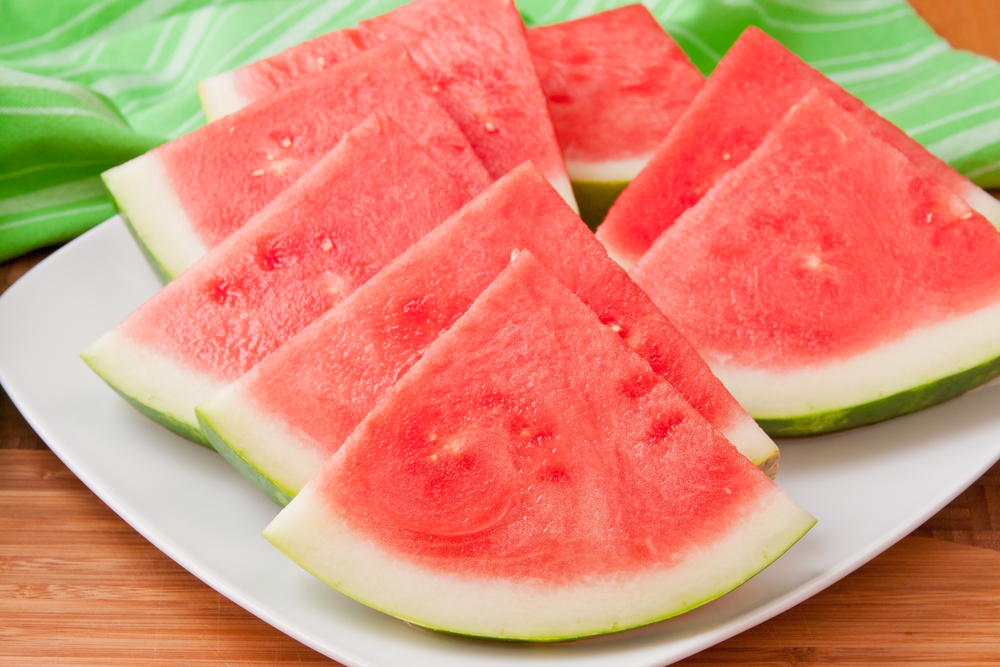
Watermelon is full of water and contains a good variety of vitamins, so it is a good way to ensure your dog stays well hydrated, even during hot summer days. You need to remove the rind and seeds before feeding it, but you can freeze the watermelon and serve it as a refreshing summer treat.
4. Blueberries
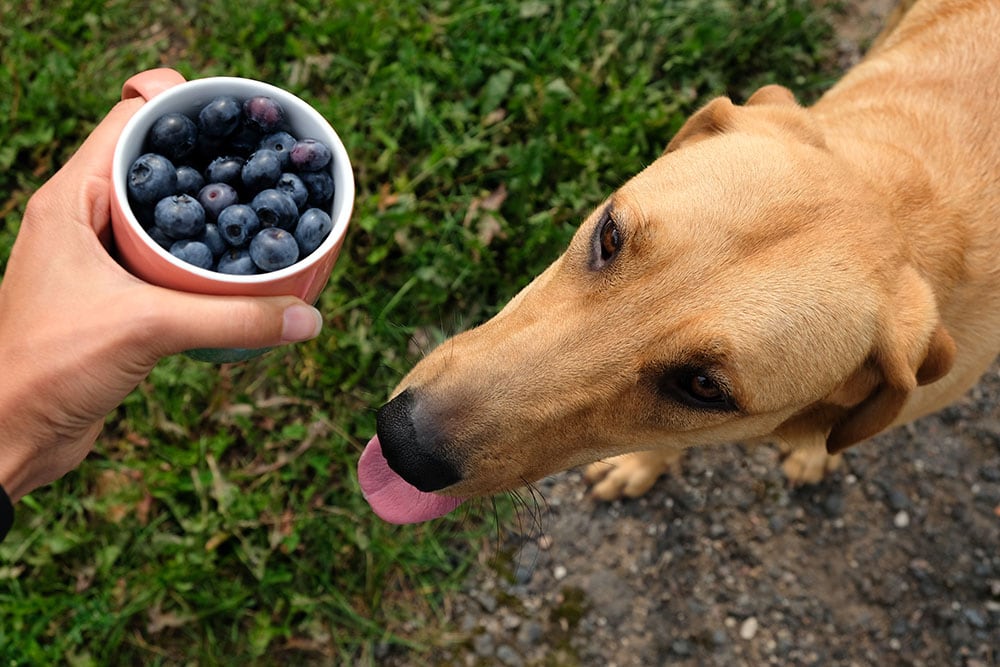
People are encouraged to eat blueberries because they are rich in antioxidants, and you can safely give them to your dog. They are conveniently sized, too, which means they can make great training treats if your dog enjoys them.
The antioxidants are as beneficial for your dog as they are for you. For some extra health benefits, feed the blueberries with natural yogurt, which contains probiotics and calcium.
5. Pears
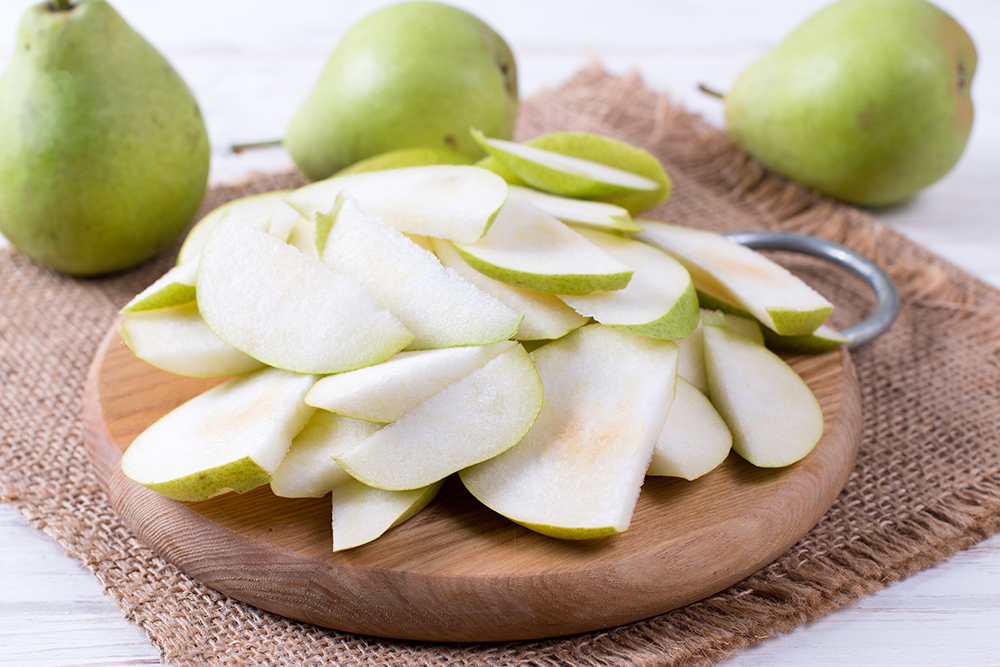
Pears have a fibrous texture that some dogs might not appreciate, but if yours does enjoy a pear, you can feed small chunks of the flesh. You should only offer the flesh since the seeds contain traces of cyanide.
Unless the pears are organic, you may want to remove the skin to avoid feeding any traces of pesticides that might be found on the outside of the fruit.

Conclusion
Durian is considered a healthy fruit for people since it is more nutrient-dense than a lot of other fruits. However, it is still best known for its spiky exterior and its pungent smell. While it is suitable for people, durian is high in fat and sugar, and it is best to avoid giving it to dogs. If you do choose to give them a small amount of this fruit be sure to remove the skin and seeds.
Fatty foods can cause digestive problems, and a diet that is too high in fat can also lead to pancreatitis. Too many high fat and high sugar treats can cause your dog to gain weight, and may lead to obesity and associated health concerns.
Featured Image Credit: Photoongraphy, Shutterstock
